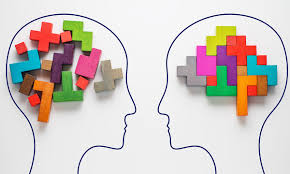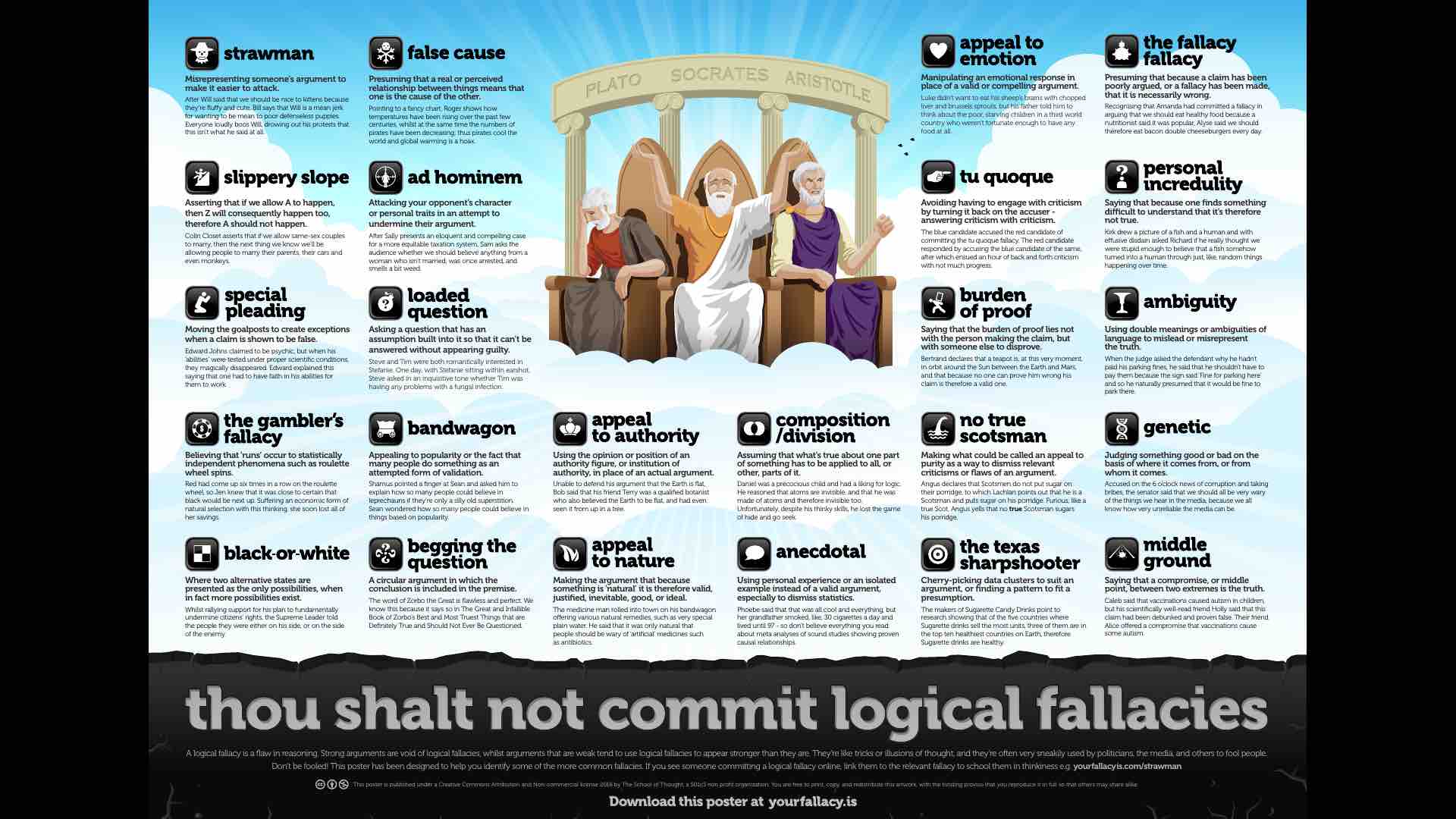

We Aren’t As Smart As We Think We Are
Life is good once more. That’s because after seven, long, excitement-free months, football is finally back. Some people look forward to Fall for the aroma of pumpkin spice lattes, the cozy warmth of a hearty Minestrone soup, and the splendour of falling leaves. But for me, it’s all about football- glorious, family-ignoring, Sunday-wasting football. And while we are nevertheless months away from having any real clarity about who will still be playing when the snow starts flying over the NFL playoffs, plenty of uninformed speculation will be flouted out over the airways nonetheless. That’s because we are all susceptible to creating hasty generalizations and appeals to emotion. We know the destination we want to arrive at, the conclusion we inevitably want to draw, and we work backwards from there, employing an inherently limited sample size to support our already flawed reasoning. We take bits of data from one week of game action and twist ourselves into pretzels trying to extrapolate it into why our favourite team can win it all. And Vegas thanks you for all of it. Because those magnificent monuments to greed and excess that line the Vegas strip are all built on the bugaboos of human reasoning known as logical fallacies, the subtle misconceptions of mind that we are all tragically privy to but blithely unaware of.
The best part about logical fallacies, of course, is that we all know just how vulnerable our fellow human beings are to them and have a keen discernment in recognizing them in others. We pick people apart for using straw man arguments, false dichotomies, and slippery slopes, but are hopelessly incognizant of our own use of them. And while that failure to acknowledge our own rational foibles just might be the greatest logical fallacy of them all, I have a feeling that the irony of that might just be lost on most of us.

The clearest example of this often comes in the arena of politics. A few weeks back, I wrote about the incomprehensible mental gymnastics of the MAGA crowd who still seem intent on supporting the former criminal-in-chief despite four separate felony indictments and a swath of evidence that’s thicker than Oliver Twist’s gruel. In order to defend the indefensible, they have resorted to the use of tu quoque arguments, a tactic where one responds to criticism by criticising the attacker rather than answering the original critique. Instead of even trying to justify Trump’s attempted coup and dismantling of American democracy itself, a transgression that would seem to fly in the face of their unbridled, flag-waving “patriotism”, they try to deflect attention from their dude’s misdoings by hanging out the shiny light of Hunter Biden’s laptop. Moreover, they suggest that the burden of proof for believing that Trump knew damn well that he had lost the election and was doing everything he could to undermine the sanctity of our election integrity lies not with the madman himself but those outside the sphere of his influence, even though we’ve all heard the “perfect” phone call Trump made to Georgia Secretary of State Brad Ratffensperger, demanding that he “find” him enough votes to overturn the verified election results of a state that he lost fair and square. Yeah, that’s some serious contortion of truth.
But make no mistake, as adept as I may be at pointing out the logical fallacies of others, I am just as susceptible to logical fallacies of my own. One of the most common types of logical fallacy is what we in the biz call ad hominem attacks, a tactic where one goes after an opponent’s character as a way of undermining their argument rather than refuting the relative strength of the argument itself. Ever since 2015, I have written time and time again about the flaws in Trump’s personal character, of which there is, admittedly, a veritable treasure trove of supporting evidence. But what I have generally avoided was assessing his actual performance as president. While there are points that could be made about many fundamental decisions and policies of the Trump administration, it is difficult to refute that the economy did thrive during his four years in office. In the end, as much as I may like to think myself above the logical fallacies that afflict the reasoning of others, I am just as guilty as everyone else.
And this recognition of our own erroneous foibles might just be the key to greater empathy and understanding for our fellow human beings moving forward. By acknowledging our own logical fallacies, perhaps we can better appreciate them in others and give them some leeway for doing so. Instead of railing against our opponents, perhaps we can politely highlight the flaws of their reasoning and ask them to do the same for us. Instead of invoking the wrath of an angry god upon them, perhaps we could see their logical pitfall for what it is and merely sidestep it with aplomb and grace. In so doing, we can carve out an element of mutual respect and understanding.
More importantly, it is possible that affording this compassion for others will allow us a bit more understanding and forgiveness for ourselves. We could all probably use a healthy dose of self-awareness and personal skepticism, and questioning our own deeply-held beliefs is always a good thing. By letting go of the ideas we are already beholden to, we can gain a fresh perspective and challenge our thinking, to draw new conclusions from the evidence we find rather than digging for evidence to support the conclusions we’ve already drawn. Instead of being entrenched in battle lines drawn many years ago, perhaps we can find common ground with those we once thought irredeemable. And then perhaps we can go back to loving each other once again.
Steven Craig is the author of the best-selling novel WAITING FOR TODAY, as well as numerous published poems, short stories, and dramatic works. Read his blog TRUTH: In 1000 Words or Less every THURSDAY at www.waitingfortoday.com





